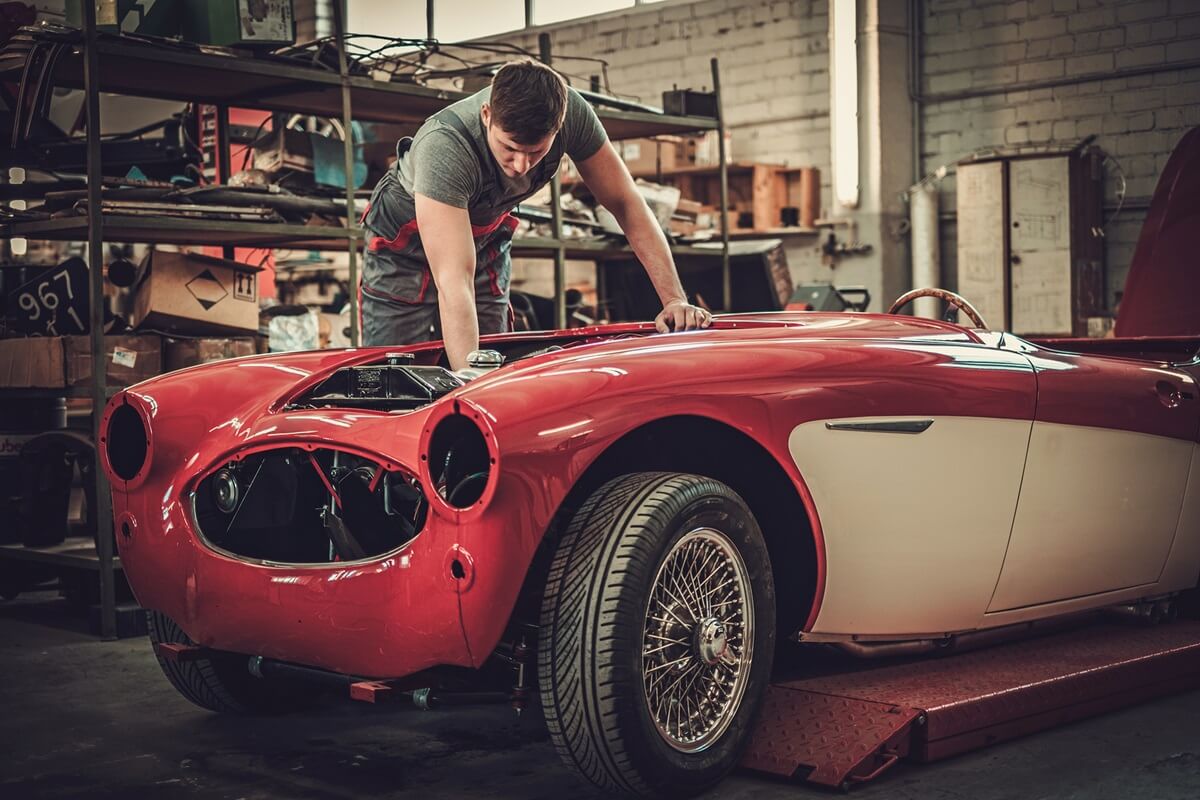Restoring vintage cars isn’t just a hobby; it’s a passion that transcends time, fueling the hearts of enthusiasts across generations. Beyond the rusty frames and worn-out interiors lies a treasure trove of reasons why these timeless classics are meticulously revived. Let’s delve into the compelling motivations behind the restoration of vintage cars.
Preserving History and Heritage
Vintage cars are more than metal and machinery; they’re historical artifacts that embody the craftsmanship, design, and engineering of a bygone era. Each model tells a unique story of innovation, representing a pivotal period in automotive evolution. Restoring these vehicles isn’t merely about fixing them up; it’s about preserving a tangible piece of history for future generations to admire and appreciate.
Nostalgia and Emotional Bonds
Behind the desire to restore a vintage car often lies an emotional connection. For many enthusiasts, these cars evoke nostalgic memories, whether it’s a vehicle from their youth, a family heirloom, or a model that once symbolized a significant era in their lives. Restoring such a car becomes a labor of love, driven by sentimentality and the desire to relive cherished moments.
Continuous Learning and Skill Mastery
Restoring a vintage car is an immersive educational journey. It’s a hands-on experience that offers a wealth of learning opportunities in mechanics, engineering, and craftsmanship. From engine rebuilding to fine-tuning intricate details, enthusiasts expand their knowledge and expertise, honing skills that might be less prominent in modern vehicle maintenance.
Personal Challenge and Achievement
The restoration process is a challenge that tests one’s patience, perseverance, and problem-solving abilities. It’s an endeavor that demands dedication and meticulous attention to detail. Completing each phase of restoration brings a sense of accomplishment and pride, culminating in the revival of a once-neglected beauty into a stunning showcase of automotive excellence.
Customization and Creative Expression
Restoring a vintage car isn’t just about restoring it to its original condition; it’s an opportunity for customization and personalization. Enthusiasts can integrate modern upgrades while maintaining the classic allure, creating a vehicle that embodies their unique tastes and preferences. From paint schemes to interior modifications, it’s a canvas for creative expression.
Investment Potential and Value Appreciation
Beyond passion, restoring vintage cars can be a prudent investment. Meticulously restored models often appreciate in value, especially rare or sought-after editions. For some enthusiasts, the process of restoration isn’t solely a labor of love; it’s a calculated endeavor that potentially yields returns, making it an attractive prospect for collectors and investors alike.
Community and Camaraderie
The world of vintage car restoration isn’t solitary; it’s a vibrant community of passionate individuals sharing knowledge, experiences, and camaraderie. Car clubs, shows, and events provide a platform for enthusiasts to connect, exchange ideas, and celebrate their shared love for classic automobiles, fostering friendships that span continents.
Environmental Sustainability
Restoring vintage cars promotes environmental sustainability by recycling and reusing materials and components. Instead of letting these vehicles decay in scrapyards, enthusiasts breathe new life into them, reducing the ecological footprint associated with manufacturing new automobiles.
Artistic Appreciation and Aesthetics
Vintage cars are often revered as pieces of art on wheels. Their graceful lines, elegant curves, and timeless styling evoke an appreciation for automotive aesthetics. Restoring these classics allows enthusiasts to revive and showcase the inherent beauty of these vehicles, celebrating automotive design as a form of art.
Sense of Legacy and Cultural Significance
By restoring vintage cars, enthusiasts contribute to preserving cultural heritage and legacy. They play a pivotal role in ensuring that these iconic vehicles continue to captivate future generations, bridging the gap between the past and the present, and passing on a rich automotive legacy.
In conclusion
Restoring vintage cars goes beyond just repairing mechanical components. It is an intricate journey that involves a deep-rooted connection to history, craftsmanship, passion, and innovation. The process of restoring these classic automobiles is not just a tribute to the past, but also a testimony to the creative and innovative minds of the people who built them.
By utilizing complete front-end rebuild kits, these vintage cars can be restored to their original glory. The process of bringing a vintage car back to life is a reflection of the unwavering commitment and love of those who undertake this challenge. Each restored vehicle stands as a symbol of the dedication and attention to detail that went into restoring it. Ultimately, the timeless allure of vintage cars will continue to inspire future generations to restore these classic automobiles with equal passion and fervor.
